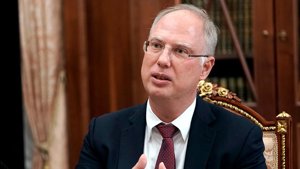
Trump Considers U.S. Military Action Against Iran
President Trump weighs possible U.S. military action against Iran, fueling debate over war powers and regional escalation.
Trump Faces Crucial Decision on Iran as White House Weighs Options
President Donald Trump is actively considering whether to authorize U.S. military strikes against Iran, a move that could have far-reaching consequences for U.S. foreign policy and stability in the Middle East. White House officials announced Thursday that a decision will come within two weeks, following days of speculation about Trump’s intentions and mounting fears of escalation.
Throughout the week, Trump has publicly discussed the possibility of deeper U.S. involvement in the Israeli-Iranian conflict, as both nations continue deadly exchanges. Despite attempts by Cabinet officials, such as Secretary of State Marco Rubio, to clarify the U.S. role, Trump has repeatedly declined to rule out military action. On social media, he asserted that the U.S. has "complete and total control of the skies over Iran" and demanded an “unconstitutional surrender” from Tehran. Speaking to reporters, Trump stated, "I may do it. I may not do it. I mean, nobody knows what I'm going to do."
These statements have intensified the debate in Washington over the legal and political implications of a potential strike. In the Situation Room—a secure West Wing complex created for high-stakes national security discussions—Trump has convened multiple meetings with top advisers, including Defense Secretary Pete Hegseth, Director of National Intelligence Tulsi Gabbard, and others. These meetings, designed to present the president with all possible options, have reportedly included reviewing plans for attacking Iran’s Fordow nuclear facility, should Iran refuse to abandon its nuclear ambitions.
War Powers and Congressional Authority at the Forefront
The debate over presidential versus congressional authority in military matters has resurfaced as lawmakers hold closed-door sessions on Capitol Hill. Bipartisan legislation led by Reps. Thomas Massie and Ro Khanna seeks to require Trump to obtain congressional approval for any offensive action against Iran. Supporters of the bill argue that the War Powers Resolution of 1973, which limits the president’s ability to wage war without explicit congressional consent, must be respected.
Yet, constitutional experts highlight that while Congress holds the power to declare war, the president, as commander in chief, retains broad authority to act swiftly in the nation’s defense. John Yoo, a legal scholar involved in crafting post-9/11 military legislation, remarked, “As a legal matter, the president doesn't need the permission of Congress to engage in hostilities abroad. But as a political matter, it's very important for the president to go to Congress and present the united front to our enemies.”
Critics warn that Trump’s threats could provoke retaliation from Iran and jeopardize U.S. personnel abroad. Others caution about potential violations of international law, particularly the United Nations charter, which restricts the use of force except in cases of self-defense. Brian Finucane, a senior adviser at the International Crisis Group, argued, "I don't think there's any plausible self-defense argument for U.S. military action against Iran," noting that such action could breach both international law and the president’s constitutional duties.
Despite these concerns, some lawmakers and security experts support Trump’s strong stance, arguing that Iran’s nuclear program poses an existential threat to both Israel and the United States. Senator John Barrasso praised Trump’s determination, saying, “He has been very consistent for 10 years saying Iran cannot be allowed to have a nuclear weapon.”
Diplomatic Pressure and Uncertain Outcomes
Amid the intensifying crisis, Trump continues to push Iran to resume negotiations over its nuclear program. However, Iran recently withdrew from scheduled talks, and Supreme Leader Ayatollah Ali Khamenei has warned that any U.S. attack would bring “irreparable harm.”
Press Secretary Karoline Leavitt emphasized that Trump is both committed to peace and ready to act if necessary. “The president is always interested in a diplomatic solution… but he's not afraid to use strength as well,” Leavitt stated.
With the next two weeks deemed critical, the administration faces pivotal decisions that will affect not only U.S. military policy but also global security and legal precedents. As high-level Situation Room meetings continue, the world watches to see whether Trump will order strikes or seize a final opportunity for diplomacy with Iran.






